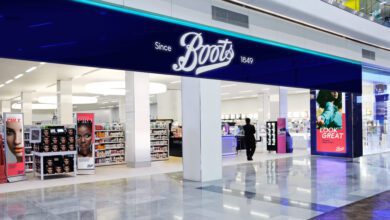How can retail recruitment face down the gig economy threat?
With consumer finances feeling squeezed amid high inflation and a stalling economy, the retail sector has faced a difficult year – with an average of 39 bricks-and-mortar stores closing every day. This, along with increasing product choice, particularly when it comes to big ticket items, is making it more challenging for brands to stand out from competitors, with customer experience becoming a focus for driving differentiation.

One way of achieving that customer experience is to play to the strengths of physical retail, offering something that the online world will struggle with: the human touch. People buy from people, and the use of brand ambassadors to focus on positive customer experiences, is a win for brand, retailer and shopper alike. A successful campaign of this nature very much hinges on the team you put in place, which means finding candidates with the personalities, skills, attitude, and experience to work in the retail sector.
In an ideal world, you will be bringing in trained experts with experience of working in the sector – but the talent pool is shrinking with the rise of the gig economy. That, compounded with low awareness of the opportunities available, means that retail recruitment is becoming increasingly difficult. So, what can brands do to draw in their ideal talent?
Competing with the appeal of the gig economy
According to research by the CIPD in 2023, just under 500,000 people are part of the gig economy, from private hire driving and food delivery to web development or translation, and with the rise of platforms like Taskrabbit and Fiverr, workers have even more opportunities.
Despite some significant downsides, workers are being drawn to the flexibility and autonomy offered by these platforms, and as a result there are fewer people willing to work on temporary retail campaigns. With a smaller talent pool to draw from, making it harder for brands to find workers with the skills and experience they need.
How to attract the right people
To compete with the appeal of the gig economy, brands should take a targeted approach, focusing both on their recruitment strategy and their value proposition.
1. Know your talent pool
Each brand needs to understand the job market to stand the best chance of attracting qualified candidates who can represent your brand and enhance the customer experience. This means understanding priorities, pressure points and how to reach the right people, and tailoring your approach to appeal to them, including using the right language or tone of voice, creating employee profiles, and highlighting brand values.
2. Get your timing right
Anticipating future needs and employing data tools to model demand is essential, especially in industries with variable requirements. Recruitment efforts need to align with job availability to prevent negative impressions and bolster the perceived suitability of the work for potential candidates.
3. Highlight the benefits
In a market where many desirable candidates are turning to the gig economy, highlighting how campaign work differs and addresses some of the downsides, can appeal to qualified candidates.
Despite the flexibility and autonomy offered by gig economy work, there is a lack of security that can lead to work-related anxiety and financial vulnerability. Gig workers do not receive the same benefits as those on PAYE, such as sick pay and paid holiday, and they also face the additional hassle of completing tax returns. When it comes to pay itself, gig workers often find that they earn less than minimum wage after overheads, when campaign recruitment would pay more.
By focusing on the additional pay, increased security, other benefits, and flexibility (if it’s on offer) brands can show the value of campaign work and draw in employees who would otherwise turn to gig work.
4. Increase visibility
Most campaign work offers similar flexibility to gig work, but it languishes in relative obscurity. Put simply, the right candidates simply don’t know it exists. Opening up discussions and promoting this type of work as an alternative to the gig economy will help to net top talent.
The challenge of finding the right team for campaign work is a burden for many brands, which are also juggling other complex priorities. Working with a company, like Gekko, which can draw on a pool of readily trained experts to create promotional teams that can be dropped into stores and immediately deliver results for brands.
Investing in recruiting the right team not only ensures the success of retail marketing campaigns, but also fosters lasting relationships with customers, driving sustainable growth and driving differentiation in a crowded market.









